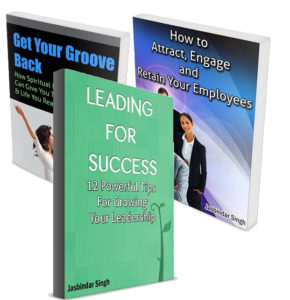 We all have our strengths and weaknesses. When we use our strengths to produce the desired results, it gives us satisfaction and rewards us both emotionally and financially.
We all have our strengths and weaknesses. When we use our strengths to produce the desired results, it gives us satisfaction and rewards us both emotionally and financially.
Our signature strengths enable us follow our natural interest and passion, do our jobs and fulfill our career aspirations in a proficient and credible way.
But the very strength we may have relied upon over the years can also become a career derailer!
So when is strength not strength? Well – a common scenario is when we overuse them.
1) Overused strengths
When strengths get so overused that they rob us of our sense of enjoyment, pleasure and ease in using them, we may well be in the territory of over-used strengths.
If you find yourself feeling tired and disengaged from the work you once loved to do, experiencing exhaustion or feeling close to burn out, do a self-check.
Could it be that you are overusing your strength(s)?
An extreme example of an overused strength is someone working in the trauma counseling field. For the victim support person or trauma counselor, there is almost daily exposure to some very intense emotions and the need to support clients through some of life’s very challenging and even unfathomable events.
Even with good supervision and other strategies in place for support, doing such a job over a long period of time can lead to burnout through overusing one’s strength such as high levels of empathy, deep listening and supporting people through their shock, grief and unexpected loss and tragedy.
Some examples to be mindful of:
Scenario one – If you find yourself to be ‘the expert’ in the organisation, just notice that you have not become so ‘pigeonholed’ that it has become a career limiter.
Your specialist role may be keeping your busy and delivering to others needs and requirements but are you growing other critical skills and competencies?
Scenario two – You have used your strength for so long and so hard that it has lost its luster or perhaps, like one manager, you relied too much on your known strengths to “wing it” but it no longer does – this could be your orange light requiring you to pause and review.
Consider how else you could balance out the rest of your work/ career /life which either develop or perhaps bring in other less developed capabilities to the fore.
2) Underutilized strengths
This is a thrilling and engaging area to explore. We also have strengths that are underutilized and or even unrealized.
Perhaps there is something you do extremely well but you have just taken it for granted. As one client put it, “it’s just what I do.”
Or it may be something you enjoy doing but haven’t quite been able to integrate it into your work and life.
Or perhaps it was an emerging strength which sadly got shut down prematurely.
Whatever category you are in, try and identify what your underutilized strength might be.
You could be sitting on a goldmine!
Many people in mid-life suddenly change their career direction and pick up on a seemingly new passion and interest.
Often we find traces of what has been an undetected underutilized strength. If you are not sure about what this might be for you, ask for feedback from 5-6 people who know you well as to what this might be for you.
3) Develop an underutilized strength
What is an underutilized strength you may wish to develop? Depending on your personality you may wish to either create a SMART plan around this or just start exploring and experimenting.
What are some relatively easy, in flow opportunities that you could step into and try in a ‘low to no cost’ way nd have some fun at the same time?
The joy of discovering something new such as creative writing, learning more accounting for non-accountants, IT, art classes or social media will not only unleash a whole lot of energy and fun but it will give your other strengths longevity and maybe even save you from early burn out!
Jasbindar Singh is an executive coach and business psychologist who loves coaching, speaking and facilitating groups and individuals for greater engagement and fulfilment.






 Follow Jasbindar on Twitter
Follow Jasbindar on Twitter




2 Responses to When is your strength “not a strength” and what to do about it